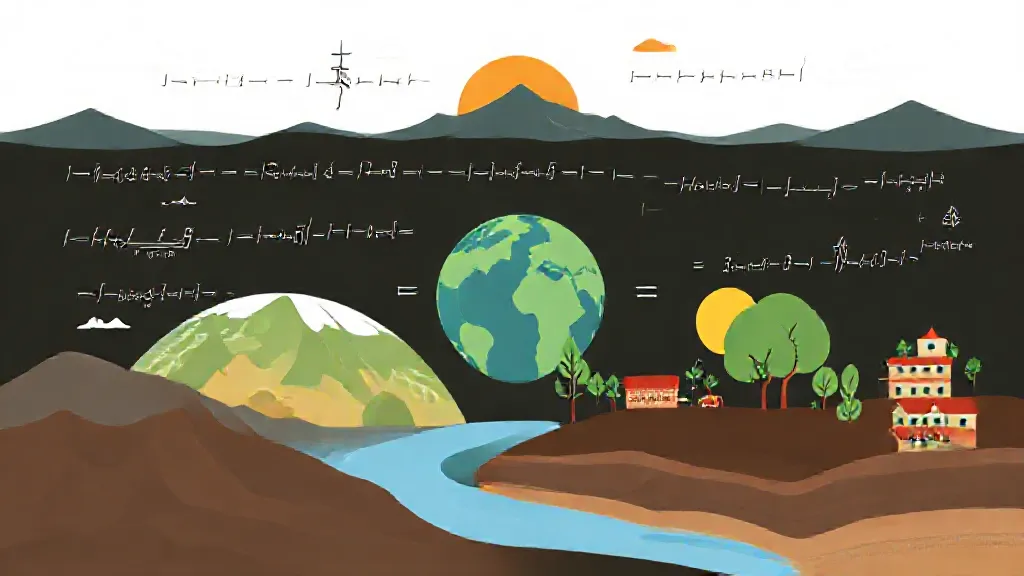Mathematics is often viewed as a purely abstract discipline, but its applications extend far beyond the classroom. In fact, math is a powerful tool that helps tackle some of the most pressing global issues we face today. From climate change to public health, the role of mathematics in solving these problems is both profound and multifaceted.
This article explores the various ways in which math contributes to addressing global challenges, highlighting its importance in education and beyond.
Mathematics and Climate Change Modeling
One of the most critical global issues today is climate change. Mathematical models are essential in understanding climate systems and predicting future climate scenarios.
By utilizing differential equations, statisticians can analyze temperature changes, sea-level rise, and weather patterns. For example, the Intergovernmental Panel on Climate Change (IPCC) employs complex mathematical models to assess the impact of greenhouse gas emissions on global temperatures. These models help policymakers make informed decisions about emissions reductions and climate adaptation strategies.
Public Health and Epidemiology
Mathematics plays a vital role in public health, particularly in the field of epidemiology. The spread of diseases can be modeled using mathematical equations that describe population dynamics. For instance, during the COVID-19 pandemic, models such as the SIR (Susceptible, Infected, Recovered) model were used to predict infection rates and the effectiveness of interventions.
These mathematical models guided governments in implementing lockdowns, vaccinations, and other public health measures, showcasing the crucial intersection of math and health policy.
Economics and Resource Allocation
In the realm of economics, mathematics is indispensable for resource allocation and optimization. Economists use mathematical models to analyze market behaviors and predict economic outcomes.
For instance, game theory, a branch of mathematics, helps understand competitive behaviors in markets, guiding businesses and governments in decision-making processes. During crises, such as natural disasters, mathematical models assist in efficiently allocating resources to affected areas, ensuring that aid reaches those in need promptly.
Mathematics in Sustainable Development
The United Nations' Sustainable Development Goals (SDGs) aim to address various global challenges, including poverty, inequality, and environmental sustainability.
Mathematics contributes to achieving these goals by providing quantitative data and analytical tools. For example, statistical methods are used to track progress towards these goals, allowing for evidence-based policy-making. Furthermore, optimization techniques can help design sustainable systems, such as energy-efficient buildings and transportation networks, aligning with the SDGs.
Data Science and Global Issues
The rise of big data has transformed how we approach global issues. Data science, which heavily relies on mathematical concepts, enables the analysis of vast datasets to uncover patterns and insights. For instance, machine learning algorithms, grounded in statistical mathematics, are used to predict food shortages, monitor deforestation, and assess the impact of climate policies.
This data-driven approach empowers organizations to make informed decisions that can lead to significant positive changes in addressing global challenges.
Education and Mathematical Literacy
To effectively harness the power of mathematics in solving global issues, it is crucial to promote mathematical literacy in education. Integrating real-world problems into math curricula can inspire students to see the relevance of mathematics in addressing societal challenges.
Programs that emphasize problem-solving, critical thinking, and data analysis prepare students to engage with complex global issues. By fostering a generation of mathematically literate individuals, we can enhance our collective ability to tackle pressing challenges.
Collaborative Efforts and Interdisciplinary Approaches
Addressing global issues requires collaboration across disciplines.
Mathematicians, scientists, policymakers, and community leaders must work together to devise effective solutions. Interdisciplinary approaches that combine mathematics with fields such as environmental science, public health, and economics can lead to innovative strategies for tackling global challenges. For instance, collaborative research initiatives that bring together mathematicians and climate scientists can yield more accurate climate models and effective mitigation strategies.
The Future of Mathematics in Global Problem Solving
As we face increasingly complex global issues, the importance of mathematics will only grow. The future will likely see more advanced mathematical techniques and technologies applied to problems such as artificial intelligence, renewable energy, and global health crises. Investing in mathematical research and education is essential to equip future generations with the tools they need to address these challenges.
By recognizing and harnessing the power of mathematics, we can work towards a more sustainable and equitable world.
